When 37-year-old Ali arrived at an unfamiliar U.S. National Guard base in Indiana in September, he was greeted with three unexpected words.
“Hey man, Ali?”
He had traveled from Afghanistan, through Qatar, Germany and Philadelphia, to Indiana’s Camp Atterbury, where U.S. troops were welcoming thousands of Afghan citizens escaping the sudden Taliban takeover. Ali, his wife and daughter were safe now, finally, but Ali was consumed by fears for the loved ones left behind.
That personalized shoutout jolted him.
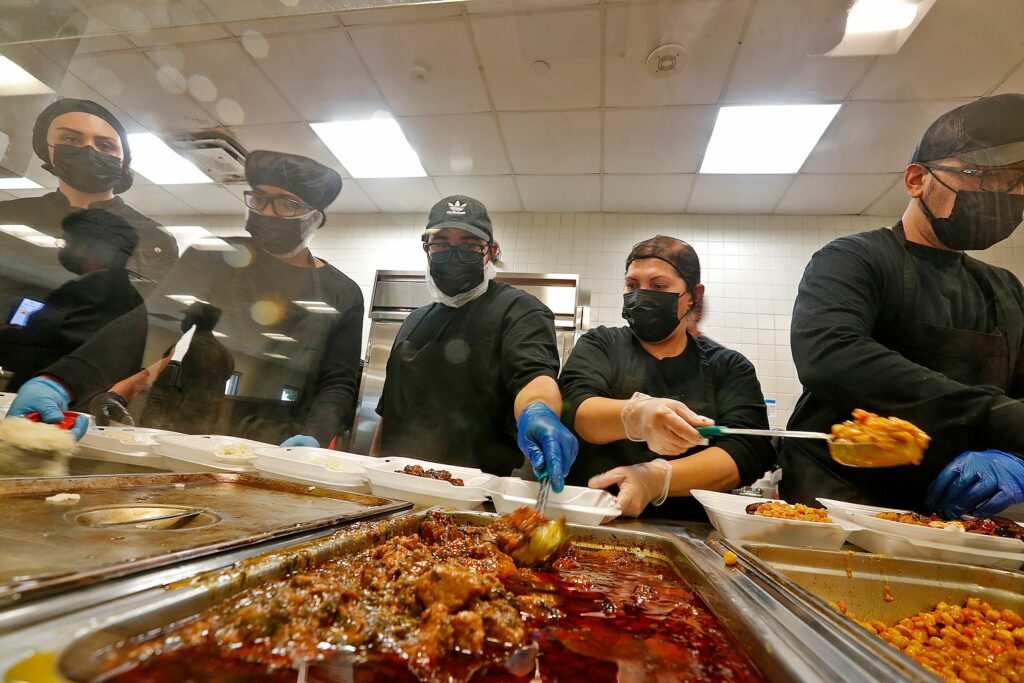
Ali stared in disbelief at the uniformed U.S. Army officer amid the sea of refugees and camp personnel.
“I saw Sgt. Hernandez,” Ali recalls, laughing. Almost like he still can’t believe it. “Oh my God, that was awesome.”
He’s overjoyed thinking back to the reunion, like a child unable to contain his excitement on Christmas morning. The happiness in his voice is palpable, even now, more than a month later.
“After all, like, bad things with pain,” Ali says, “that was a good thing.”
The officer was Sgt. 1st Class Richard Hernandez from San Antonio most recently assigned to assist with “Operation Allies Welcome” at Camp Atterbury. On the day of Ali’s arrival, he had been tasked with counting busloads of evacuees coming in, but a single voice made him pause.
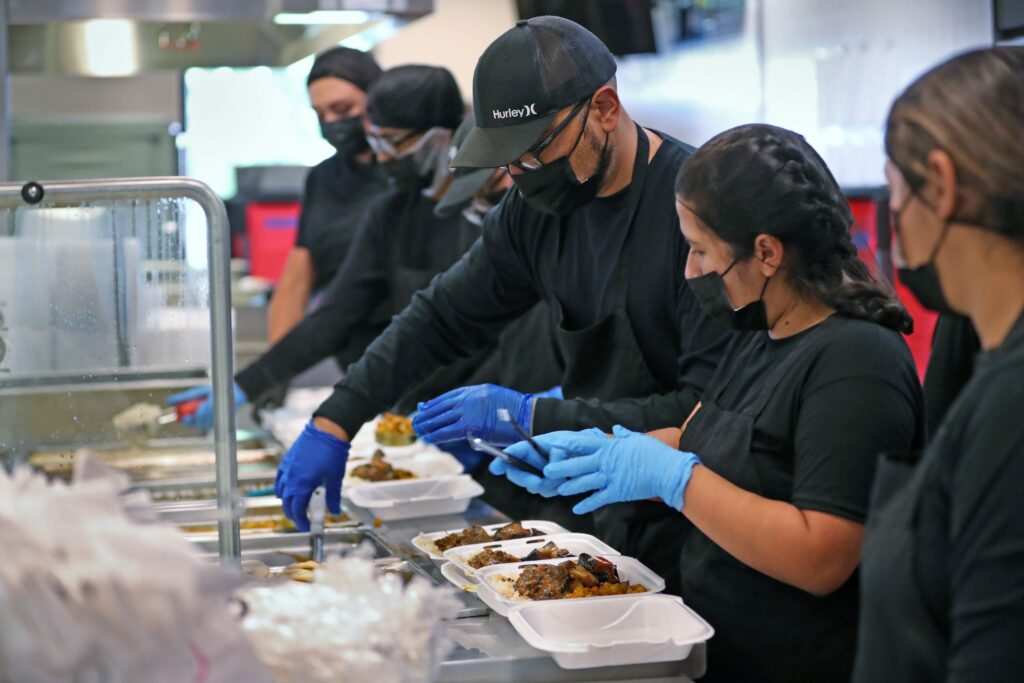
He’d heard it before, many years ago, thousands of miles away in Afghanistan.
“Is that really him?” Hernandez wondered.
It was the slow, gravelly voice that had helped him understand the dynamics of the country and what people were saying in both the Dari and Pashto languages. It was the voice that had introduced him to pomegranates and taught him the importance of respecting elders.
It was the voice of an Afghan translator and cultural adviser who had spent years helping the Army. It was Ali, of course.
“Sometimes laughing is so hard, and no one can make you laugh (or) can give you happiness,” Ali said. “But Sgt. Hernandez, he (gave) me really happiness.”
‘We’ve been through everything’
Ali’s trip to Indiana wasn’t the first time he escaped the Taliban.
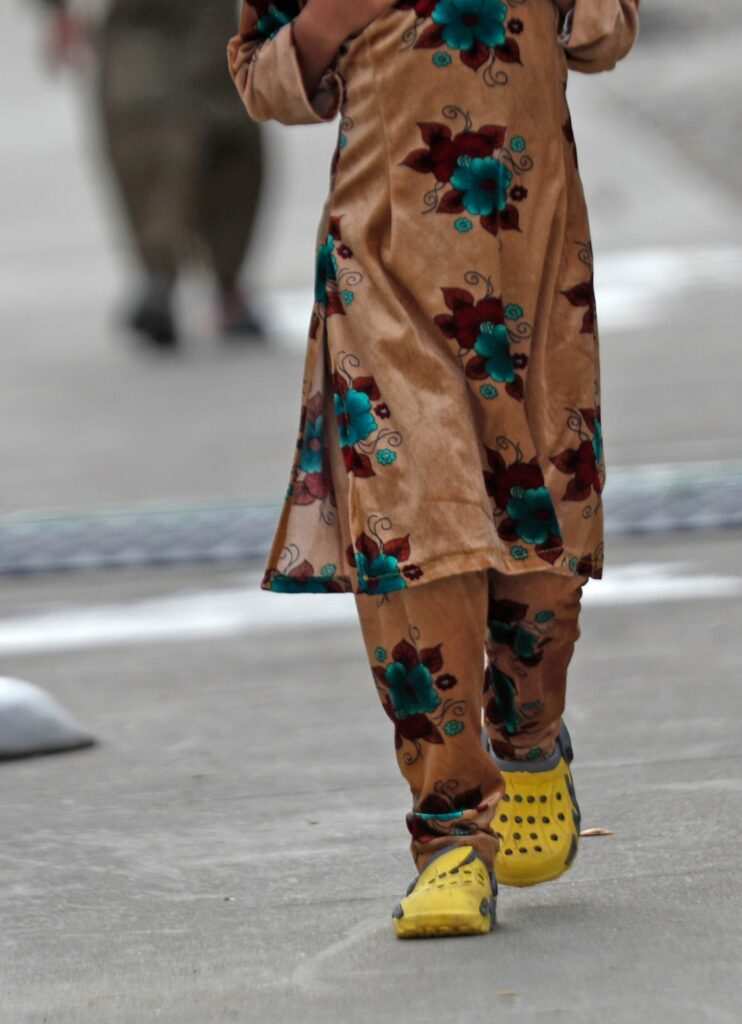
In 2016, he and his family began a new, safer chapter when they immigrated to the U.S., through the Special Immigrant Visa program, designed to help Afghan interpreters and others who took significant risks to work alongside the United States. The nonprofit “No One Left Behind” has recorded more than 300 interpreters and family members have been killed because of their American connection. IndyStar is not using Ali’s last name out of concerns for his safety.
They have been living in Phoenix since then, settling into American culture — a process made easier thanks to his time spent embedded with U.S. Army units in Afghanistan.
He took the translator job in 2008, he says, because he wanted to help his country. He remembers learning English through private classes, BBC radio and Hollywood. Though English is known as a relatively harder language to learn, Ali says he picked it up fairly easily.
Ali doesn’t work for the U.S. government anymore, but this past May, he and his family decided to pay a visit to their homeland. Just a few weeks before, President Joe Biden had announced his decision to slowly withdraw all U.S. troops from Afghanistan. Ali says his family’s return tickets to Arizona were booked for Aug. 21.
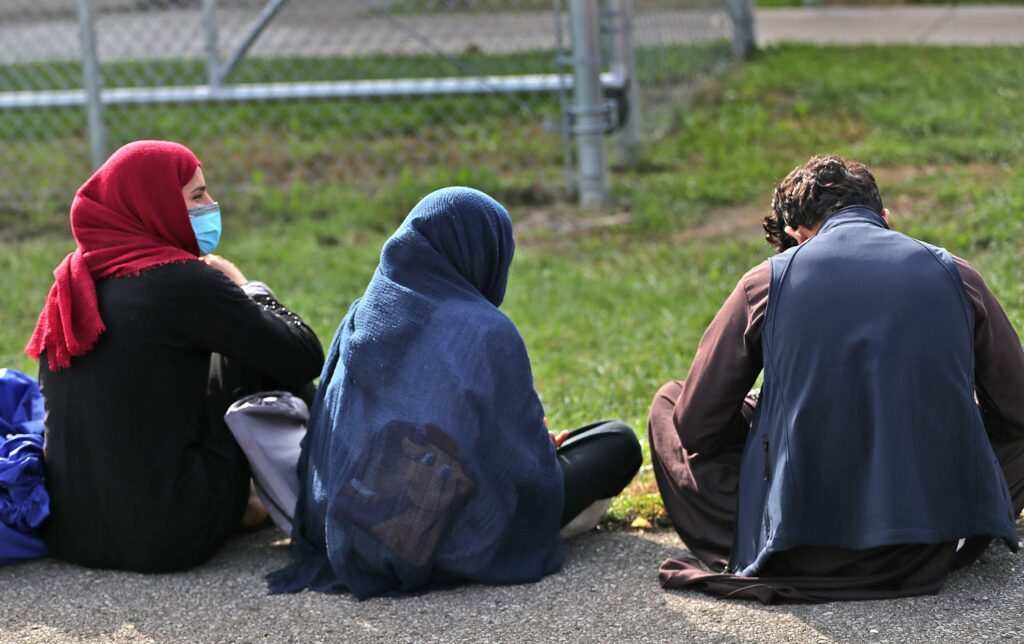
“We had a great time,” Ali said, remembering the reunions with friends and relatives. “We just enjoyed … We were so happy.”
Until the Taliban took over.
We were so scared’
“We (were) so scared,” Ali said, remembering Aug. 15, the day Kabul fell to the Taliban. “We didn’t know what we (were) supposed to do.”
He called the U.S. Embassy, he says, but no one answered the phone. He desperately hoped for help from friends and former American connections.
The sudden crisis, though shocking, was all too familiar for Afghan people like Ali who have had entire lifetimes shaped by danger and despair.
“We’ve been through everything in Afghanistan,” Ali said.
When he was 12 years old, the Taliban killed one of his older brothers. His father died soon after because of the grief, he says. He remembers his family, part of the Hazara ethnic minority group in Afghanistan, often moving from home to home, district to district to stay safe. Ali himself has been arrested by the Taliban, he says.
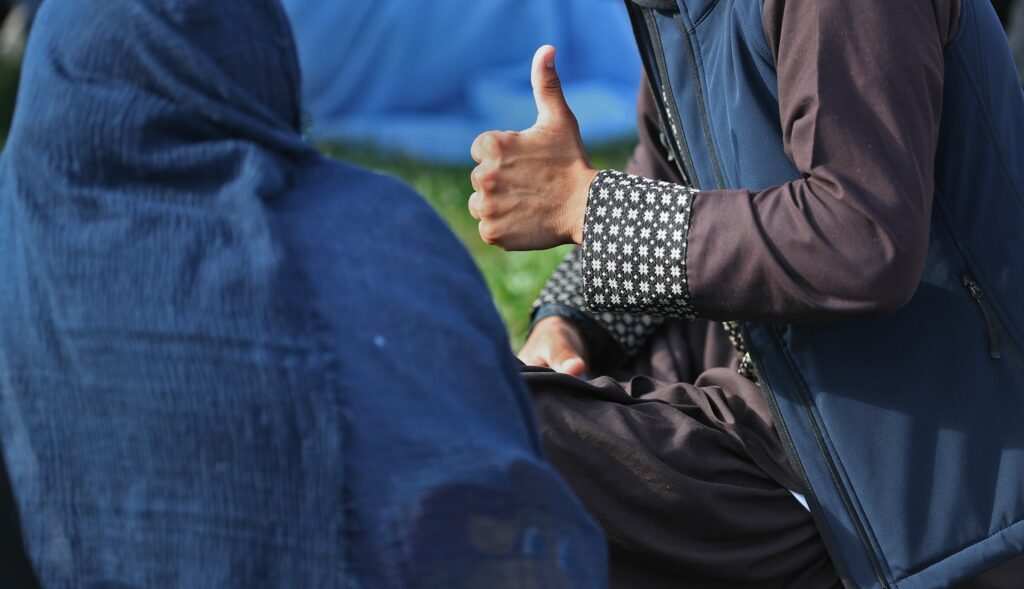
Hoping and dreaming for the future were luxuries they did not have.
“We’ve been in danger all the time,” Ali said. “We just hope(d) at that time, that Taliban will not arrest us on that day and not kill us that day.”
More than 20 years later, after America’s longest war, old fears and traumas are resurfacing.
“Still my family’s in danger in Afghanistan,” Ali said, noting his female relatives stay at home now. “I hope God and some people help Afghanistan to just … for the Afghanistan people to become free. But still, they need some help.”
He feels an even bigger sense of loss, especially after his work with the U.S. Army.
“Especially, we felt bad for American soldiers,” Ali said. “I remember those years, how we suffer(ed), how we fought … I felt so bad … We (spent) a lot of money … A lot of human life in Afghanistan. Then we left like this?”
‘He paved the road for me’
For Hernandez, the man who welcomed Ali back to safety in the United States, the situation in August created “mixed emotions.”
“A lot of the people that I worked with,” Hernandez says, “(I) definitely thought about them.”
He thought about the U.S. soldiers and contractors that didn’t come back home, and the Afghan military and NATO forces who helped his soldiers. Since October 2001, more than 800,000 U.S. service members have served in Afghanistan, according to the Department of Defense. More than 20,000 have been wounded and more than 2,350 have died.
Welcoming Ali at Camp Atterbury was a blessing, Hernandez said, especially after their experience in Afghanistan together. It was like a favor for a favor, the ultimate “thank you.”
“He just like paved the road for me and my service,” Hernandez said. “The end result was all my soldiers (came) back in one piece, healthy. And I feel like a lot of that was Ali … he molded me to where I am now, honestly.”
Once Ali and his family got settled at the camp, he and Hernandez talked about their time together in Afghanistan. Just “refresh(ing) our memory,” Ali says.
They remembered the Afghan man in the Kandahar province who used to offer them tea and pomegranates, a treasured staple in the country. It didn’t take long for the American soldiers to become fans of the fruit, too, Ali recalls. He was surprised that they began eating like the Afghan people, messy and with their hands.
“I’m like so obsessed with those now,” Hernandez says.
They marvel at how they reunited again in the unlikeliest of circumstances.
“The world is too small,” Ali said.
“It’s one of those moments you never really have,” Hernandez said. “That’s what made this mission special … That impacted the way I view the mission. I’m not processing Afghan refugees. I’m processing and assisting people. And I’m helping people to get to the U.S.”
Ali was only in Camp Atterbury for a few days, flying back to Arizona in September to, once again, settle into a better life.
“It was good seeing you again brother,” Hernandez remembers telling Ali when the two hugged goodbye. “Keep in touch.”
Ali is grateful his daughter doesn’t have to grow up the way he did, but he hopes other loved ones left behind will soon be able to find safety in the U.S. Bringing them over here, he says, is a long, cumbersome immigration process for just one person to undertake.
“I need for people to help me out,” Ali said. “When I work with the American Army in Afghanistan … they were the same like me. They were in my country, and I help them a lot to send them safe back home.”
He’s not asking for anyone to “repay” him, he says, though he reflects on his work with pride. None of his U.S. Army units suffered casualties, major or minor, during his time with them, he says.
“The same way now (hopefully) I can find people to pull out the rest of my family from Afghanistan.”
___
© 2021 www.indystar.com
Distributed by Tribune Content Agency, LLC.



